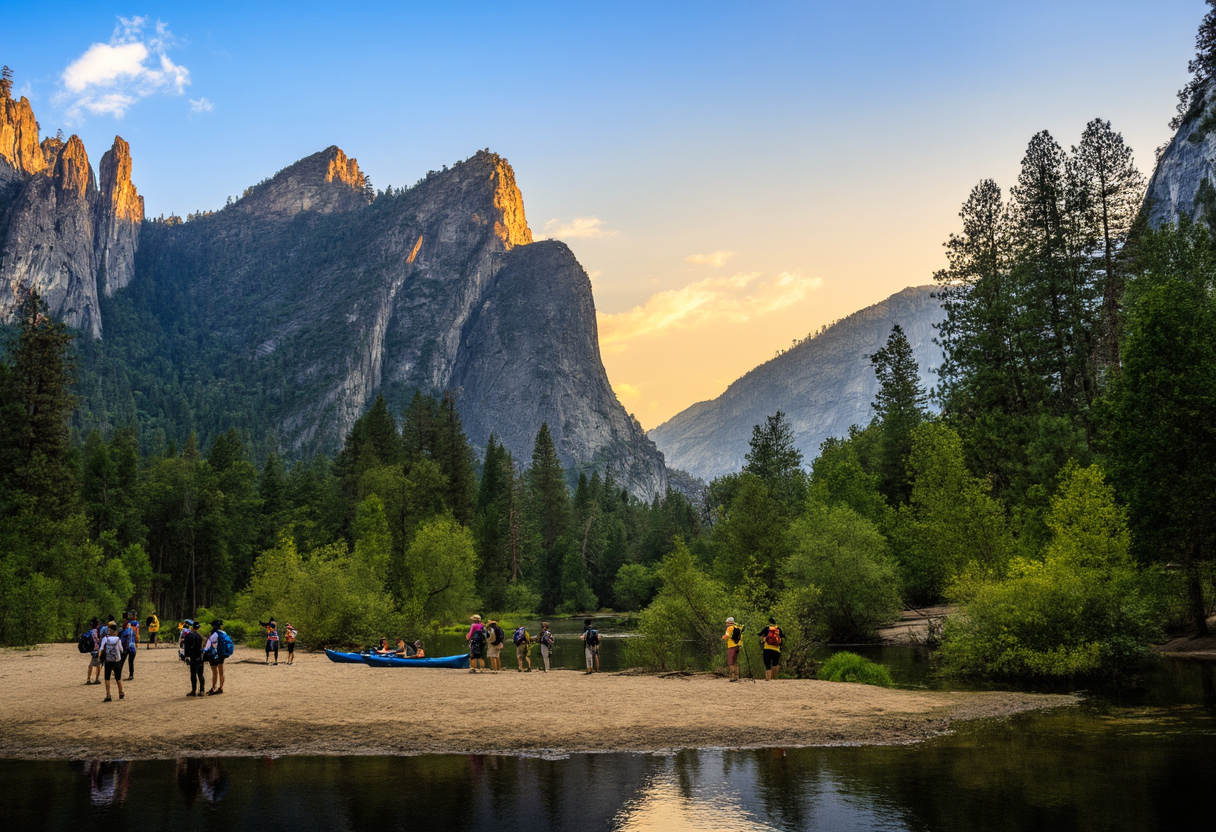Adventure Tourism: A New Era of Exploration and Ecological Awareness
Adventure tourism is more than just a trend—it's a lifestyle that champions exploration and ecological consciousness. This article explores the growth of adventure tourism, its diverse activities, cultural significance, and the critical balance between adventure and environmental stewardship.
Defining Adventure Tourism
Adventure tourism can be defined as engaging in activities that are both physically challenging and environmentally enriching. It aims to go beyond simple pleasure travel; rather, it encompasses experiences that foster a deep appreciation for nature and promote active participation in environmental conservation. Whether it’s through mountain biking in scenic landscapes or traversing untouched national parks, adventure tourism provides a platform for exploration that cultivates a profound connection with the earth. As we unpack the layers of adventure tourism, we will uncover the transformative experiences it offers to adventure enthusiasts worldwide.
The Ecological Impact of Adventure Tourism
One of the significant aspects of adventure tourism is its potential to raise awareness about ecological issues. Travelers who engage in adventure activities often find themselves in the great outdoors, where environmental changes are palpable. This exposure can lead to heightened awareness and advocacy for conservation efforts. For example, participating in eco-tours or wildlife conservation projects can foster a sense of responsibility among travelers, encouraging them to become stewards of the environment. Therefore, adventure tourism serves as a vital conduit for ecological education, promoting sustainable practices that protect our planet.
Diverse Forms of Adventure Tourism
Adventure tourism manifests in many forms, broadening the scope of traditional travel experiences. Adventure seekers may choose from activities like white-water rafting, rock climbing, or zip-lining, which all provide thrilling experiences and reconnect travelers with nature. Additionally, soft adventure tourism is gaining traction, appealing to those looking for lower-intensity experiences such as hiking or bird-watching. This diversification allows a broader audience to engage in adventure tourism, catering to varying levels of comfort and fitness while exploring the beauty and excitement the world has to offer.
Cultural Significance of Adventure Tourism
Adventure tourism is deeply intertwined with cultural exchange. Traveling to remote destinations not only allows visitors to engage with unique landscapes but also empowers local communities to share their stories. Authentic experiences can drive tourism to lesser-known areas, bridging cultural gaps and fostering empathy among travelers. While adventure tourism offers thrilling expeditions, the cultural narratives encountered along the way profoundly enrich the journey. Ultimately, adventure tourism allows travelers to engage with the world through a lens of curiosity and cultural appreciation.
The Future of Adventure Tourism
Looking ahead, adventure tourism is poised to grow as more travelers seek experiential journeys that offer both excitement and purpose. Trends such as 'slow travel' are gaining momentum, with travelers opting for more immersive experiences that prioritize cultural significance and ecological sustainability over quick, superficial visits. This shift signifies a broader societal movement towards responsible tourism practices. Additionally, adventure tourism operators are encouraged to adopt sustainable business practices to ensure the balance between exploration and conservation is maintained, paving the way for a more sustainable future.
Addressing the Challenges of Adventure Tourism
Despite the many opportunities adventure tourism presents, it also faces challenges that must be addressed. Issues such as environmental degradation due to increased foot traffic, or the commodification of local cultures, require careful management. Sustainable practices become paramount as travelers navigate the delicate balance between adventure and conservation. Additionally, educational initiatives that emphasize responsible tourism can equip travelers with the knowledge and tools necessary to minimize their impact on the environment. By addressing these challenges, adventure tourism can continue to inspire and connect travelers to the wilderness and the cultures that inhabit it.
